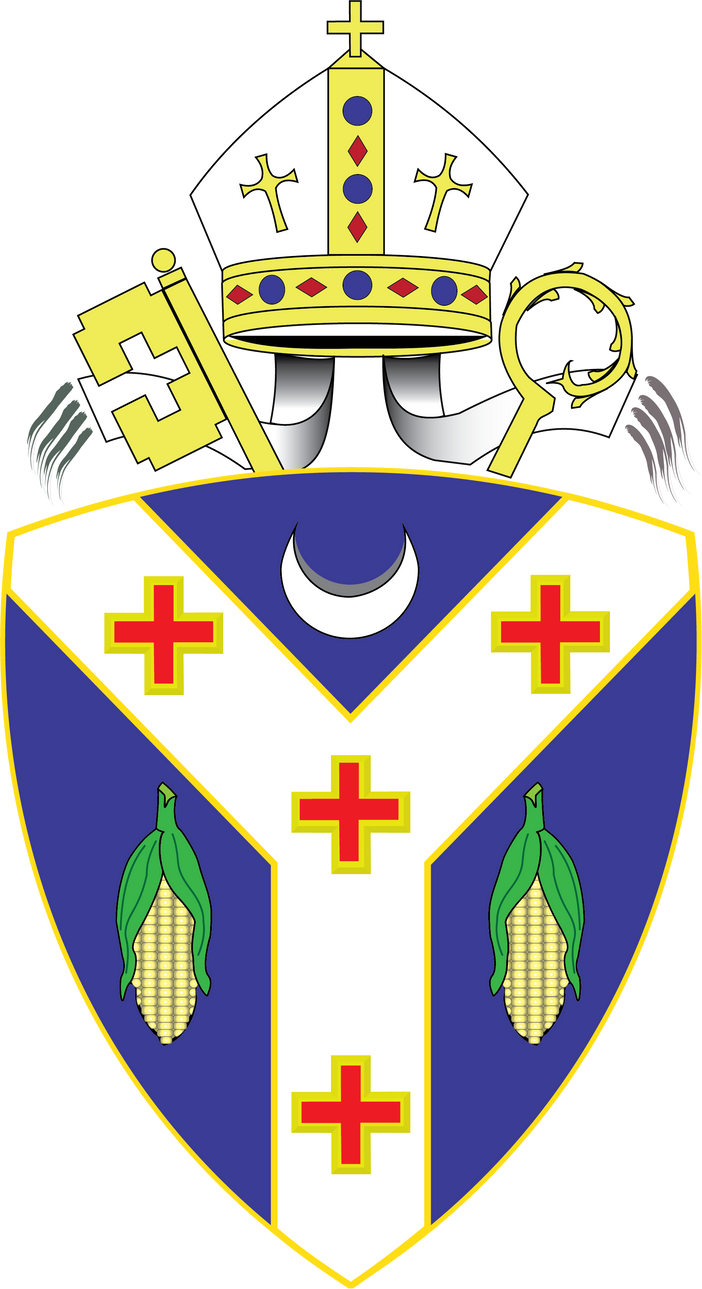
Diocesan Profile 2024
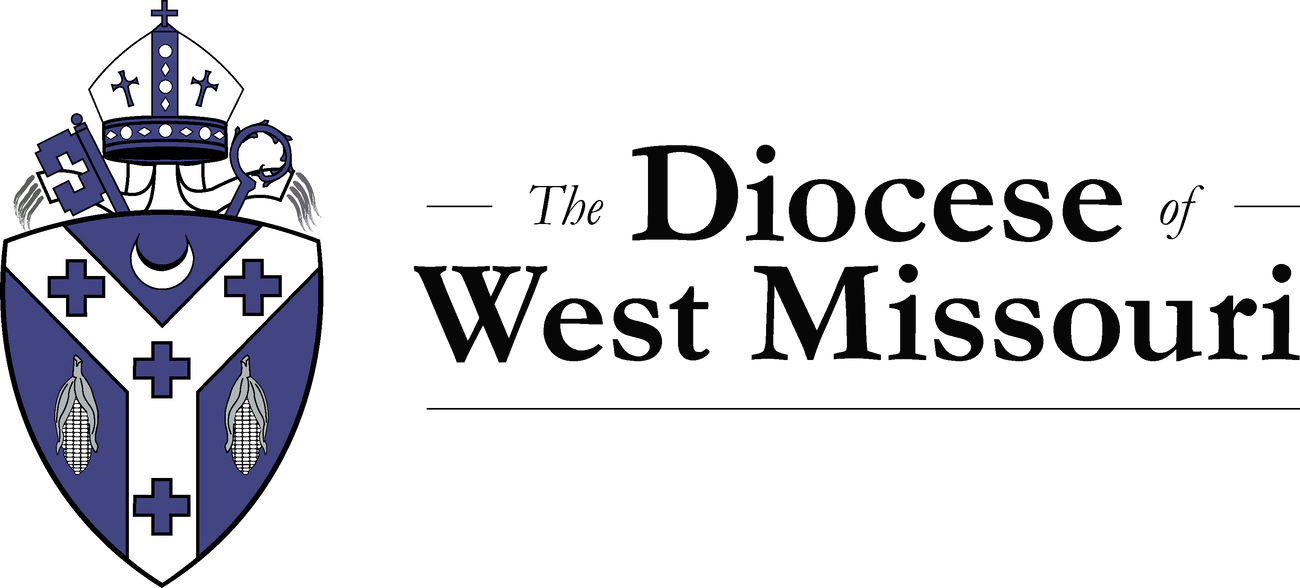
Meet Us in the Middle
IX Bishop Search
Invitation from the Chair
Thank you for discerning with us in this process to call the ninth Bishop Diocesan of
The Diocese of West Missouri. We hope these pages, telling of the ministry and mission in
our diocese, are a guide for you as we, together, seek the will of God in this process.
Addressing the Primary Convention of West Missouri, the Rt. Rev. Daniel Sylvester Tuttle,
serving then as Bishop of Missouri, addressed the people who would later become The
Diocese of West Missouri saying, "Yours is a glorious mission field. Talk missions,
work missions, love missions." As we, in 2024, behold God's ministry and mission enacted
in and through The Diocese of West Missouri, this same truth is as clear to us in 2024 as it
was to Bishop Tuttle in 1890: in every corner, congregation, and community of The
Diocese of West Missouri, the mission field is glorious. From rural congregations to suburban
and urban, from the breathtaking Ozarks to large cities in Springfield and Kansas City, in a hospital system
and Episcopal school, in worship and outreach and learning, and in every moment of every place, the Holy Spirit continues to shed abroad God's promise of hope and love and life in this place. In the middle of all this, we continue to discover that God's mission field in West Missouri remains glorious these 130+ years later.
In January 2024, a large cross-section of our 47 congregations and communities gathered in 16 listening sessions; additionally, we received survey feedback from nearly 250 members of our diocese as we began to hear of the challenges, dreams, and values we share as we discern God’s will in electing the IX Bishop of The Diocese of West Missouri. We have discovered that, across our vast diversity, we share more in common than we don’t. The common ground we share, the perspective of meeting in the middle, does not equate with being average or complacent in this place, but a generous space in which we encounter one another and God and from which we are sent forth by God’s Spirit. Collectively, we are a people who are committed to knowing and serving our communities, with worship as our foundation for all of the ministry we share in our diocese.
When he stood to address the first convention of the nascent Diocese of West Missouri, our first bishop, the Rt. Rev. Edward Robert Atwill said, “Thus with many hearts to love the Diocese, with many tongues to pray, with many minds to think and many to work … the Lord’s arm will be stretched out to prosper and to bless, and our dream will come true.” With many hearts to love this place and with many tongues praying and thinking and working, we know the vision God has for God’s Kingdom come to earth is coming true here.
We thank you for your prayerful consideration in joining us in this discernment, and we look forward to sharing this sacred time with you.
The Rev. Steven King
Chair, Bishop Search Committee
Video message from the Chair of the Bishop Search Committee, The Rev. Steven King
Allow Us to Introduce Ourselves
The Diocese of West Missouri is a place of mission and ministry in the middle. Sure, we’re in the middle of many maps, but being in the
middle is more integral to our identity than merely a coincidence of geography. We’re a diverse collection of Christians, following Jesus to
the middle of our increasingly divided communities and proclaiming the Gospel to those on every side. We meet in the middle not only to
share in prayer and worship together but to reach out to our neighbors in all kinds of need. We’re stronger in the middle, and we value the
unity we’re experiencing in new and renewed ways in this season of new collaborations and innovative endeavors – and we’re looking for
our next bishop to meet us in the middle of mission and ministry in West Missouri.
In the middle of this discernment process toward electing the ninth Bishop Diocesan of The Diocese of West Missouri, the Bishop Search
Committee encourages you to explore this profile with a prayerful and inquisitive spirit. While we’ve attempted to capture the breadth of our
diocesan ministries in this profile, we’ve included plenty of hyperlinks for you to follow so you can go deeper into our story and get a sense of life
in our diocese at this time.
If you’re wondering – even the slightest bit – whether God could be calling you to be the bishop for our beloved diocese in the middle, we hope you’ll submit the application packet detailed at the conclusion of this profile and join us in prayerful discernment.
Let’s meet in the middle.
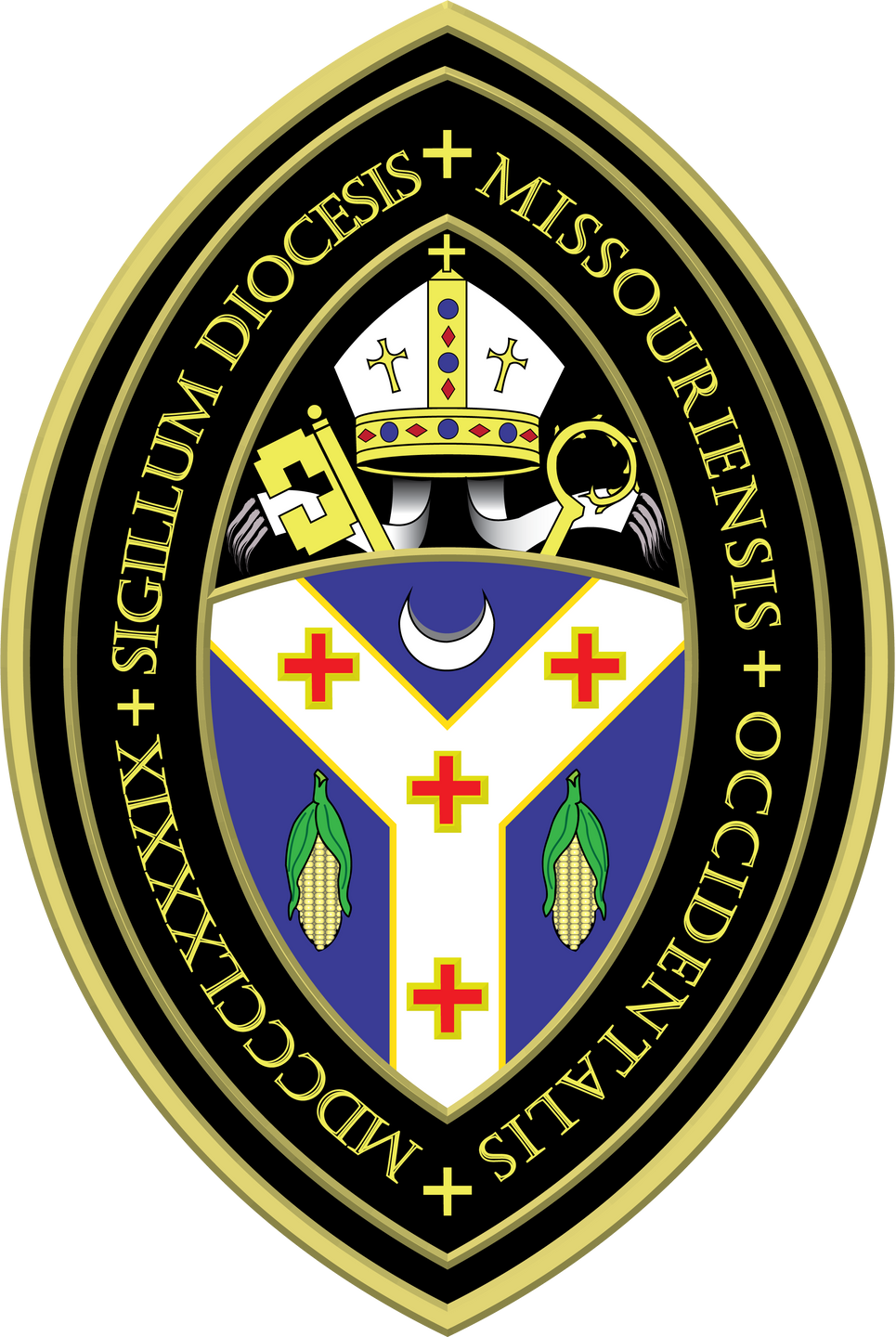
A Prayer for the Bishop Search
O Creator God, giver of every good gift, look graciously on us in the Diocese of West Missouri and guide us as we discern our call of a new bishop. O Jesus, be present in our discernment, and lead us to a shepherd who will invite us to live out the Gospel every day. O Holy Spirit, inspire us with your wisdom, and kindle our hearts with the fire of your love, that we may be renewed as we prepare to welcome the ministry of our next bishop. This we ask trusting in You. Amen.
We’re Distinctly Midwestern
Welcome to Missouri. Jokingly referred to by some as Misery or the South of the Midwest, the Show-Me-State is a vibrant place of farms, small towns, big cities, and everything in between. You’ll experience all four seasons here, sometimes in the same week! Our diocese encompasses the western half of the state. While St. Louis, in that other diocese, is sometimes referred to as the furthest West of the Eastern U.S., Kansas City – our diocesan see – is the beginning of the West. Until 1991, the Kansas City Stockyards flourished as the premier place to sell livestock for over 100 years. If you were “going west” in the 19th century, you likely
departed on a trail from Kansas City. Today, our see city has a booming economy with industry, housing, and public transportation
continually expanding.
We sit at the crossroads of the United States. According to the latest census data, Hartville, in the southeast part of our diocese, is the
population center of the U.S. The southern part of the diocese is anchored by Springfield, our diocese’s second largest city and the home
of Bass Pro Shops. This is the heart of the Ozarks, a geographical area with many people descended from settlers who came from
Appalachia and with strong cultural ties to that past.
As we look to our truthful-but-tragic past, we recognize our diocese had 25 lynchings in 15 different counties according to eji.org. Through
the work of our Diversity & Reconciliation Commission, we’ve held two pilgrimages to lynching sites to pray and lament together – one in
Springfield and one in St. Joseph. St. Augustine’s in Kansas City is our only remaining historically Black congregation, and it’s a hub for
many of our efforts toward diversity and reconciliation.
Most of the Native American population of Missouri had been pushed out by White settlers by the time of our statehood in 1821.
Native peoples included the Kickapoo, Shawnee, Ioway, Otoe-Missouria, Delaware, and Osage. Many tribes passed through our state on
their way to the Indian Territory of present-day Oklahoma on the Trail of Tears. In August 2023, the Rev. Bradley Hauff came to lead a
workshop on the Doctrine of Discovery as we seek to diversify our learning and perspective.
Many of the communities that make up our diocese, particularly in rural areas, have significant portions of the population who are Hispanic.
Our diocesan missioner for Hispanic ministry, the Rev. Canon José Palma, is nationally recognized for his work of congregational development
among rural communities in southwest Missouri. The congregations he leads in Carthage and Noel are among the first of our diocese to hold services in Spanish, and we look forward to increasing our ministry among Hispanic communities across West Missouri.
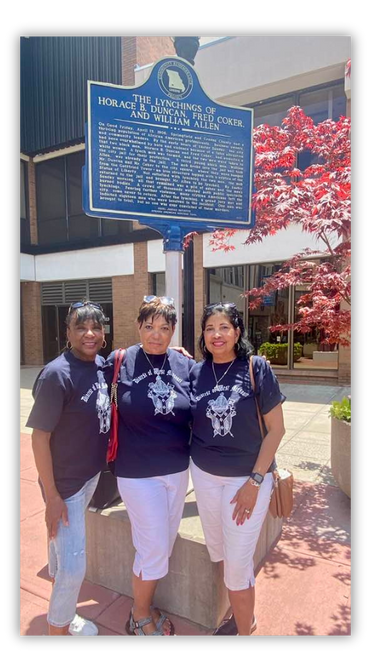
Parishioners of St. Augustine’s commemorate the lynching of three African American men in Springfield, MO on Juneteenth.
It’s not all corn
Museums & Attractions
PLUS
the American Jazz Museum, Negro Leagues Baseball Museum, Harry S. Truman Presidential Library, National Frontier Trails Museum, The Nelson-Atkins Museum of Art, Lake of the Ozarks, and live shows & entertainment in Branson.
Trails, Sites, Parks

52
State Parks & Historic Sites
7
National Historic Trails
1
National Monument
George Washington Carver
1
National Battlefield
Wilson’s Creek
1
National Heritage Area
Freedom’s Frontier
1
National Riverway
Ozark National Scenic
1
National Historic Site
Harry S. Truman
Ozark National Scenic Riverways (nps.gov)
Professional Sports

Kansas City Chiefs (NFL)

Kansas City Royals (MLB)

Sporting Kansas City (MLS)

Kansas City Current (NWSL)
KC Current will play in the first stadium built for women’s professional sports.

Springfield Cardinals (Double-A Affiliate)
Survey says...
The Diocese of West Missouri at a Glance
60
counties
2,960,391
people
$60,983
median household income
59.6%
employment rate
14.2%
of the population lives at or below the poverty line
6.6%
of the population identifies as Hispanic or Latino
29.5%
of the population has a bachelor’s degree or higher
Click here to take a closer look at the counties that make up our diocese.
2020 Decennial Census
2022 American Community Survey
“Yours is a glorious Missionary field. Talk Missions, work Missions, love Missions from the very start.”
The Rt. Rev. Daniel Sylvester Tuttle, D.D., Bishop of Missouri
Primary Convention of West Missouri, 1890
Our Missional DNA
It’s no exaggeration to say The Diocese of West Missouri exists
because of its missional heart. The Episcopal Church came to our
state with the Rt. Rev. Jackson Kemper, consecrated in 1835 as The
Episcopal Church’s first missionary bishop and known for good reason
as “Bishop of the Whole Northwest.” Kemper brought his missional heart to Missouri, founding four congregations in the western half of our state, which are still alive today: Christ Church, Boonville (the second congregation begun in Missouri, 1835); St. Mary’s, Fayette (1836); Christ Church, Lexington (1844), and Trinity, Independence (1844). The Diocese of Missouri was organized in 1841, and faithful lay people and clergy started scores of mission stations in the western half – from Amazonia and St. Joseph in the northwest, down the river to Kansas City, overland to Carthage and Springfield in the southwest, and as far east as West Plains – 375 miles away from northwesternmost Skidmore, still the home of St. Oswald’s-in-the-Fields (literally). Even newly founded
congregations felt the call to keep finding new neighbors to serve: Grace Church in Carthage, organized in 1870, planted
St. Philip’s in nearby Joplin just four years later.
Two congregations from this period reflect our Church’s troubled history with people of color in western Missouri. In 1882, the
diocese founded a congregation in downtown Kansas City, named for St. Augustine of Hippo and set aside for Black people.
Despite being marginalized in resources and in governance (not accepted as a parish until 1950 even with significant growth),
St. Augustine’s has proclaimed the kingdom boldly in word and deed for 142 years. Black Episcopalians also founded a
congregation in St. Joseph, St. Matthias’ Church, in 1885, a mission lasting until 1957.
West Missourians also answered the call to serve their neighbors through the founding of what would become Saint Luke’s Health
System. In 1882, the rector of St. Mary’s in Kansas City organized All Saints’ Hospital to serve people in need. Later renamed for
St. Luke, the hospital is the heart of a system that has become one of Kansas City’s premier healthcare institutions and recently
integrated with BJC HealthCare of St. Louis, expanding its capacity for clinical research while keeping its Episcopal identity strong.
The urge to share the Good News through new worshiping communities grew at such a pace that the diocese split in 1886,
retaining the eastern half (more or less) as the Diocese of Missouri and creating a new Diocese of Kansas City, later renamed West
Missouri, to include the 52 parishes and missions planted in the 40 years since Bishop Kemper. At our first convention, the
Rt. Rev. Daniel Tuttle, whose passion and energy had helped create our new diocese, named the missionary task before us.
Christ Church, Boonville, MO
Oldest Church in the Diocese of West Missouri
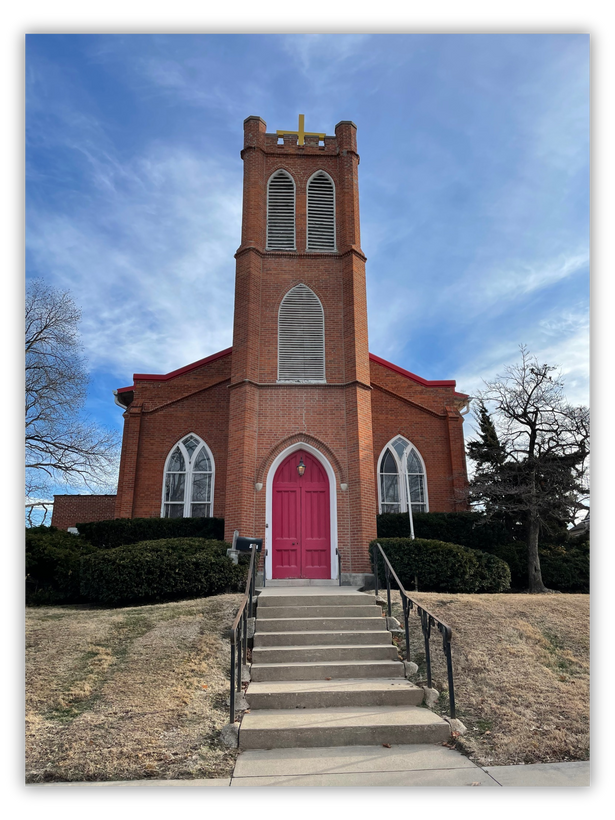
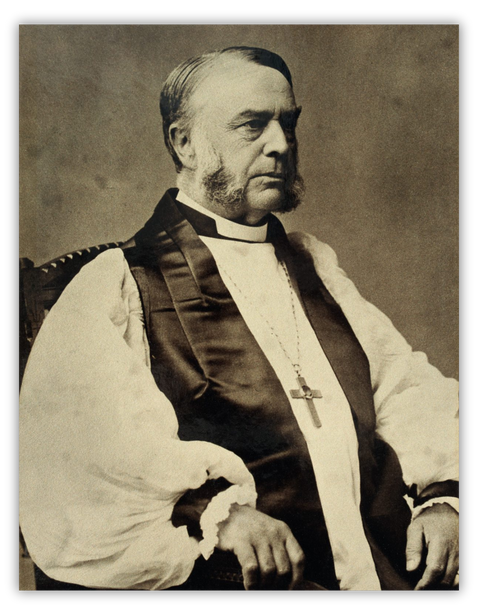
The Rt. Rev. Edward Atwill
The new bishop, the Rt. Rev. Edward Atwill, did just that. In its first convention, the new diocese gathered special pledges for mission on top of the congregations’ regular assessments – pledges totaling more than $100,000 in today’s value. The next year, our convention again asked for special pledges for mission, raising another $81,000 in today’s value. That extra fundraising supported about 20 missionaries for diocesan work.
West Missouri continued its growth into the late 19th and early 20th centuries, with congregations started in rural settings like Skidmore (St. Oswald’s-in-the-Fields), Trenton (St. Philip’s), and Monett (St. Stephen’s), as well as in Kansas City and Springfield. But new leaders also helped West Missouri Episcopalians live into the call to seek and serve Christ by loving their neighbors. The Rev. (later, the Rt. Rev.) Robert Spencer certainly embodied that spirit. He overcame a childhood marked by illness and disability, going to seminary only to fall ill again and nearly die. Called to St. John’s in Springfield, he eventually came to Trinity in Kansas City, a congregation most people expected him to close because of its internal divisions, limited resources, and changing neighborhood demographics (sound familiar?). Instead, Spencer led the congregation to serve the people around it, housing migrant railroad workers in the church. Interviewed by the local newspaper, Spencer said, “This is Christ’s house. He would have taken them in….
There is no story here.” Spencer later led his parish to unite with another congregation to become Grace & Holy Trinity Cathedral in Kansas City, where he continued to preach about the call to serve and build relationships across social divides. Recognizing his missional heart, the people of West Missouri elected him bishop in 1930 – the last time a bishop was elected from within our diocese. He described his program as bishop this way: “I hope to make the Episcopalians of West Missouri Christians.” Despite the Great Depression, Spencer led the diocese in more special funding for mission work, raising $113,000
in today’s value. The effort restored missionary activity to rural churches across the diocese and supported clergy for
the rest of the decade. After World War II, Spencer led another fundraising push to help existing mission
congregations in high-population areas become self-supporting and do their own mission work. Spencer resigned in
1949, having worked himself into a heart attack, but his second missional fundraising effort still exceeded its goal.
From the early 1950s to the early 1970s, led by the Rt. Rev. Edward Welles, West Missouri added 10 congregations
in urban centers and rural locations, including St. Nicholas in Noel, today one of two centers of Hispanic ministry in
southwest Missouri. The 1990s brought another wave of church planting in Kansas City and Springfield, as well as
St. Alban’s in Bolivar – today a vital contrast presence in a rural area dominated by evangelical Protestantism.
Since the 1990s, we’ve put our missional energy less into church planting and more into serving Christ in the people
around us. Today, even in our smallest congregations, faithful Episcopalians are reaching out to people in need nearby.
For example, at St. Philip’s in Trenton, a congregation with an average Sunday attendance of five, members participate in three local anti-poverty efforts and three ministries supporting families at local schools, host a recovery group, and broadcast Compline on the local radio station on Sunday nights. Similarly, a member of Trinity in Lebanon started a local teen shelter after learning about the concept at a diocesan workshop. You’ll find the same wiring in larger congregations, just expressed on a different scale. St. Paul’s in Kansas City operates a food pantry containing five different feeding ministries and led the way with our diocese’s first official participation in Kansas City’s PrideFest, after years of individual parishes participating. (In 2024, the Episcopal presence at Ozarks Pridefest in Springfield will be diocesan-sponsored in addition to the work the parishes have been building there.) Grace & Holy Trinity Cathedral founded what’s become NourishKC, a local antihunger organization, and now hosts Pete’s Garden, an agency providing meals to families with less-than-living-wage jobs. Christ Church and St. James Church in Springfield each have years-long partnerships with local elementary schools and feed their neighbors throughout the
year. St. Andrew’s in Kansas City has relationships with 15 local service organizations and schools, gave away more than
$200,000 to support outreach efforts last year, and operates a community center and coffee shop for its neighbors.
Redeemer in Kansas City supports hundreds of families through their Northland Infant Clothing Center. And several
West Missouri congregations have long-standing relationships supporting parishes and schools in Haiti.
Along with celebrating our willingness to follow Bishop Tuttle and “talk Missions, work Missions, love Missions,” we
recognize our failures to stand alongside people of color in West Missouri through much of our history. Our Black
congregations received less support and less respect than White congregations (underscoring the remarkable story of
perseverance by St. Augustine’s in Kansas City). The diocese has only recently begun marking its history of 25
lynchings through prayer and witness at lynching sites. And, although we’ve supported Hispanic ministry with the
work of a diocesan staff member since 1991, we haven’t yet taken that missional impulse beyond southwest Missouri.
Building our diversity is a growing edge for us, one we hope our next bishop will help us expand.
We also want to be direct about our experience of our diocese’s last episcopate. In a nutshell: Most diocesan stakeholders found our bishop insufficiently engaged in the lives of our congregations and felt that his communication and pastoral care lacked empathy. Several diocesan members from traditionally marginalized groups said they felt they weren’t heard and that their concerns weren’t taken seriously. These issues led to The Episcopal Church’s first Title III action toward reconciliation of a pastoral relationship, in which the Standing Committee shared with our bishop what changes most West Missouri stakeholders needed to see in their relationship with him. That relationship came to an end when the bishop resigned. Through our Title III process, and especially through the ongoing work of our Bishop Provisional, we’ve come to see more clearly our own contributions to this troubled relationship. As a diocesan family, we find it challenging to speak truth directly, especially in conflicted relationships. We easily slip into the shadow side of “Midwest nice,” keeping up appearances for people with whom we disagree and triangulating our real concerns to someone else. We’re committed to dismantling these dysfunctional patterns, and we seek a bishop who can help equip us for the work of ministry by helping us “come to the unity of the faith and of the knowledge of the Son of God, to maturity, to the measure of the full stature
of Christ” (Ephesians 4:13). One expression of this commitment is our new practice of hosting mutual and
collaborative ministry reviews that are loving and honest, allowing us and our bishop to name our perceptions of
each other, jointly strengthening our diocesan ministries and our relationship. Therefore, we also seek a bishop
whose wiring for mission is matched by wiring for relationship, collegiality, and collaboration.
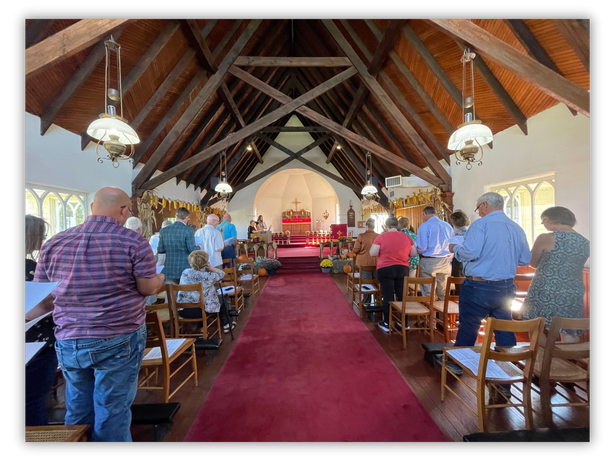
St. Oswald’s-in-the-Fields
Harvest Festival 2023
Members of the diocese at Kansas City PrideFest
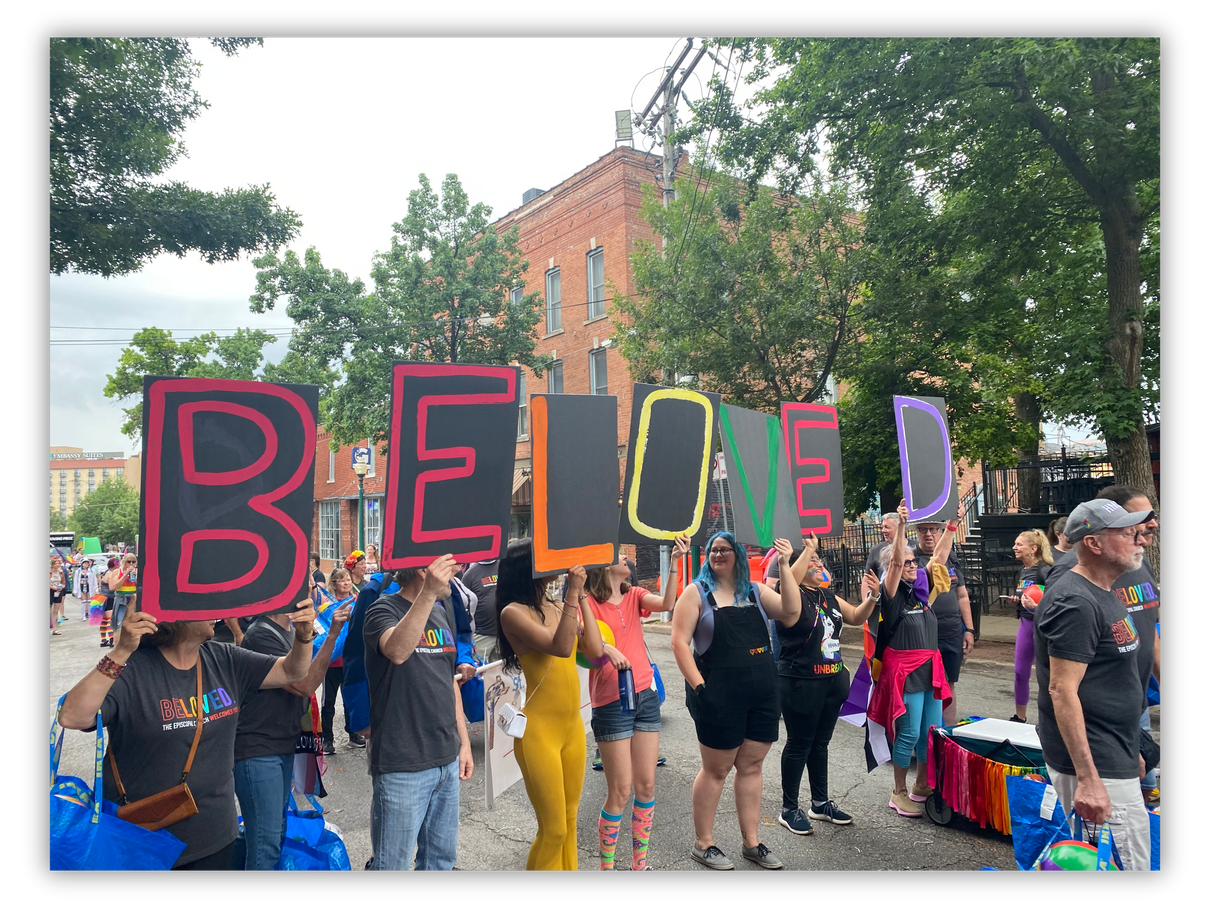
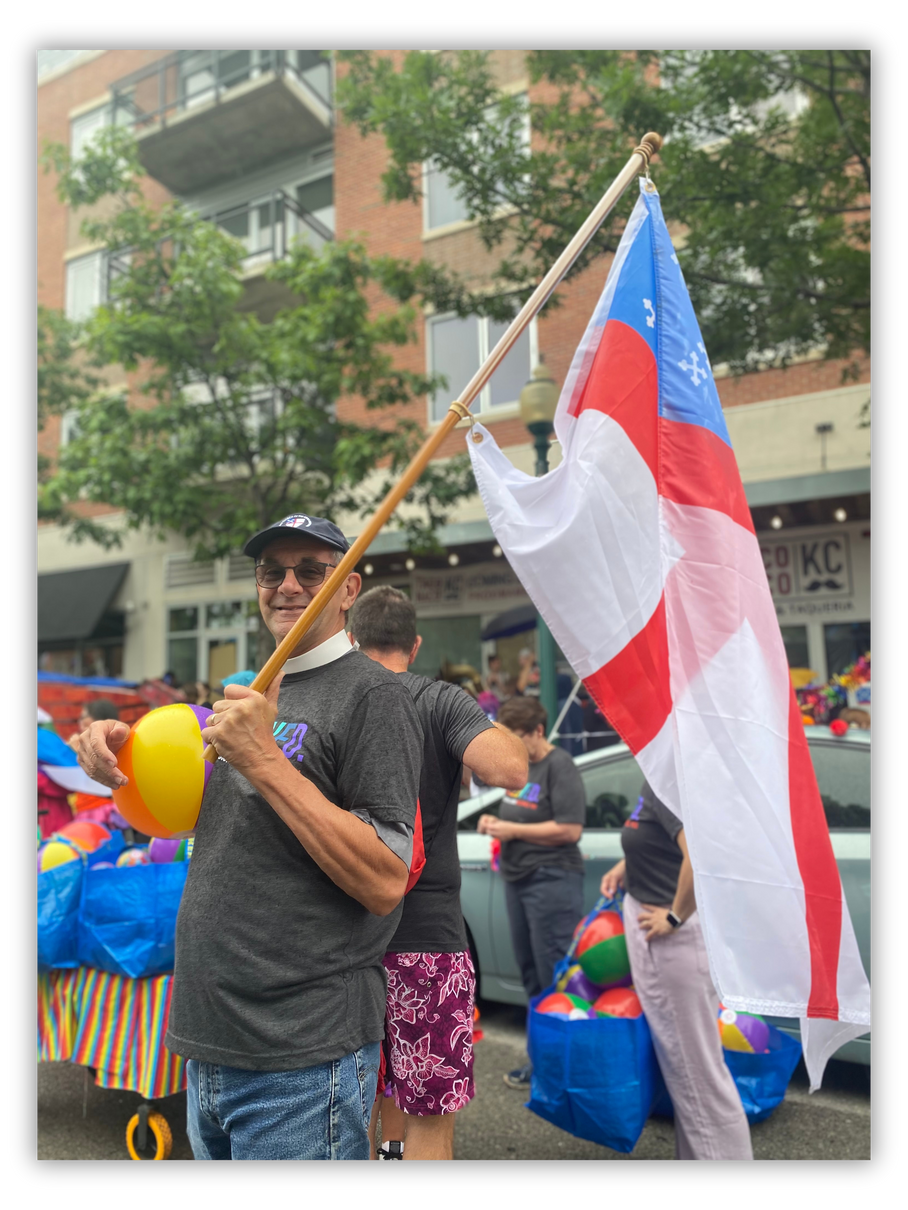
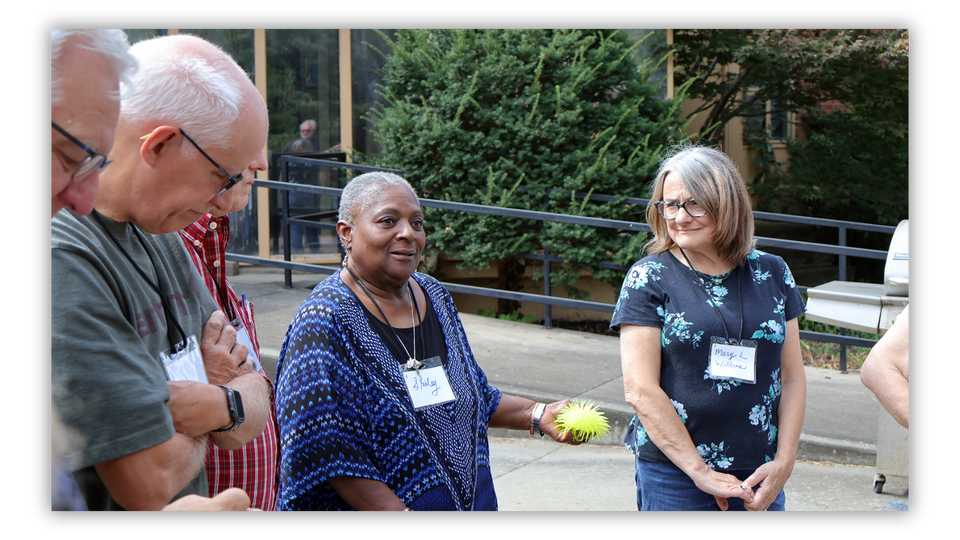
Canon Shirley Bolden facilitating conversation at a Diversity and Reconciliation Retreat
The Rev. Galen Snodgrass holding the Episcopal flag at Kansas City PrideFest
Ministry in the Middle
“We need someone compassionate, who meets us where we are, and who can look at the diocese as a whole. We’re urban, rural, and in-between.”
Diocesan listening-session participant
In American culture, with its idolatrous sense of success and achievement, being “in the middle” isn’t typically a compliment. But in West Missouri, we see our centrality – in every sense of that word – as a blessing.
When you live in the middle, you come to see it not in the sense of being average (just ask any Chiefs fan) but in the sense of prioritizing certain values. Here, we remember the rural history that roots us and sustains us for growth. Although we’re proud of Kansas City and its urban renaissance, West Missouri was and is part of the nation’s breadbasket. Agriculture contributed $94 billion to Missouri’s economy in 2021, as well as more than 450,000 jobs (https://agriculture.mo.gov/economicimpact/). It’s no accident that The Diocese of West Missouri’s shield includes two ears of maize.
Being rooted in the land plays out in our diocesan culture, too. Just as the land endures, so do our connections with our neighbors. Through bumper crops and lean times, we’re invested in the people around us. In a place marked by the enduring cycles of the seasons, we know quick fixes and empty promises when we hear them. Like the people who’ve tended West Missouri for millennia – from the Osage and the Otoe-Missouria to the White settlers who dispossessed them – the Episcopalians of West Missouri are in it for the long haul. And over that long haul, we’re committed to cultivating vitality in our fertile soil.
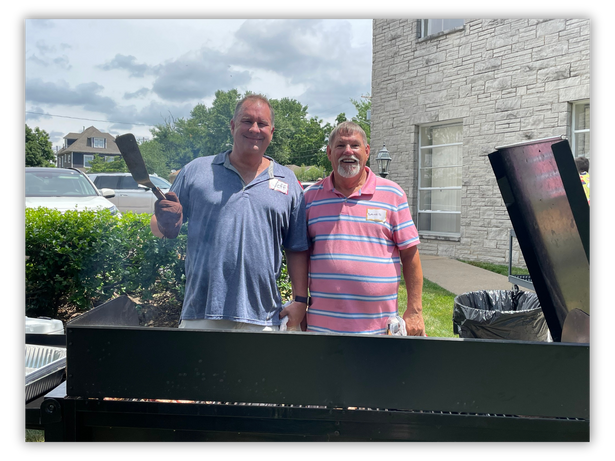
Southern Deanery Picnic at St. John’s in Springfield
Although we recognize our need to keep pushing the boundaries of “we,” our rootedness means we prioritize middle ground. In a larger culture that amplifies divisiveness for power and profit, the people of our diocese know we’re in this together – and we value behaving that way. In West Missouri, you’ll find progressive prophets advocating for justice alongside traditionalists advocating for an America that once defeated tyranny in two world wars – and you’ll find them coming together in committee meetings, deanery picnics, and outreach ministries, united in their Episcopal identity and their love for one another. As one diocesan member said in a listening session: “What the Episcopal tradition can offer is diversity in unity for a world increasingly characterized by echo chambers. Because we come together for common worship, we gain the ability to live in diversity. Our tradition can offer that space to the world, and we have a world desperate for that space.”
What does that vision of unity mean about the leadership we seek? It means relationship comes first and last, embracing a shared commitment to the Good News of Jesus Christ. The reign and rule of God has implications that transcend the culture’s political dualism. People need access to healthy food; people need affordable places to live; people need work that pays them enough to live on; people need the earth to be stewarded as God intends; people need just systems that protect the rights and well-being of all; historically marginalized people need to be full partners in God’s work; all God’s people need to stand together around the altar and in church leadership, in contexts and languages they claim; and the stories we tell need to include the full and uncensored truth of our history. As Jesus quoted from the prophet Isaiah, “The Spirit of the Lord is upon me, because he has anointed me to bring good news to the poor. He has sent me to proclaim release to the captives and recovery of sight to the blind, to set free those who are oppressed, to proclaim the year of the Lord’s favor” (Luke 4:18). All of that is Gospel. And…here in the middle, we value a humility that understands that my approach to embodying God’s reign may be different from yours – and if we listen, we can both learn, both being formed to work for the changes we hear God leading us to seek.
That call to inhabit the holy middle may help explain why outreach ministry is so central for us, uniting West Missourians whose voting patterns in a presidential election might differ vastly. One person may believe in the power of free markets to expand opportunity; another may believe in the government’s obligation to transfer resources from those who have plenty to those who have few. But these West Missourians will come together to read to schoolchildren, and feed hungry families, and educate kids in Haiti, and celebrate the Eucharist at PrideFest. As a banner in the yard at our largest congregation reads, “God loves all. All means all. Pass the peace.”
So, in our bishop search, we’re seeking someone who’s called to listen, bridge divides, and draw differing hearts together. An exchange during a diocesan listening session captured well what we need in episcopal ministry here: Our new bishop has to be able to talk weather with farmers, high finance with corporate leaders, social justice with people at a rally, and healthcare administration with the Saint Luke’s Hospital board. And in all those conversations, our new bishop must embrace the holy messiness of ministry in the middle.
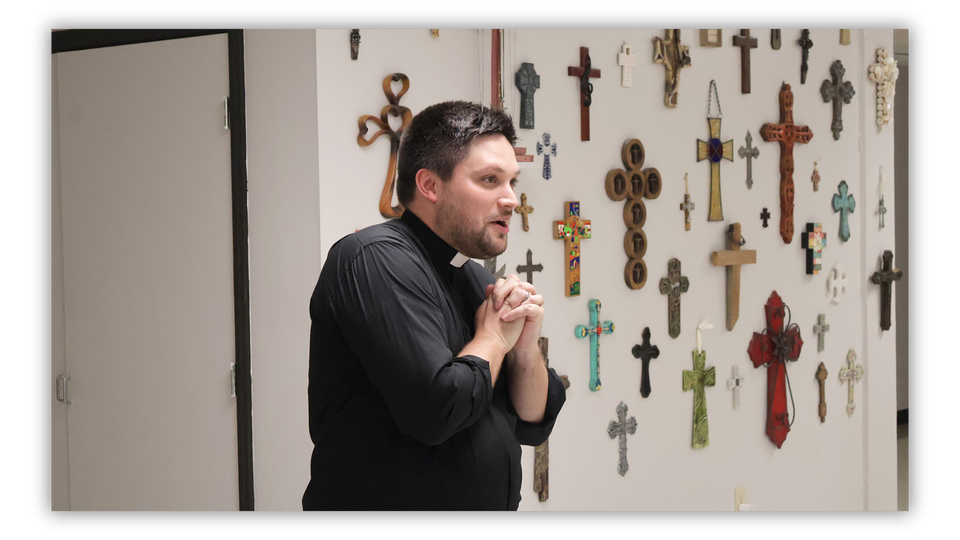
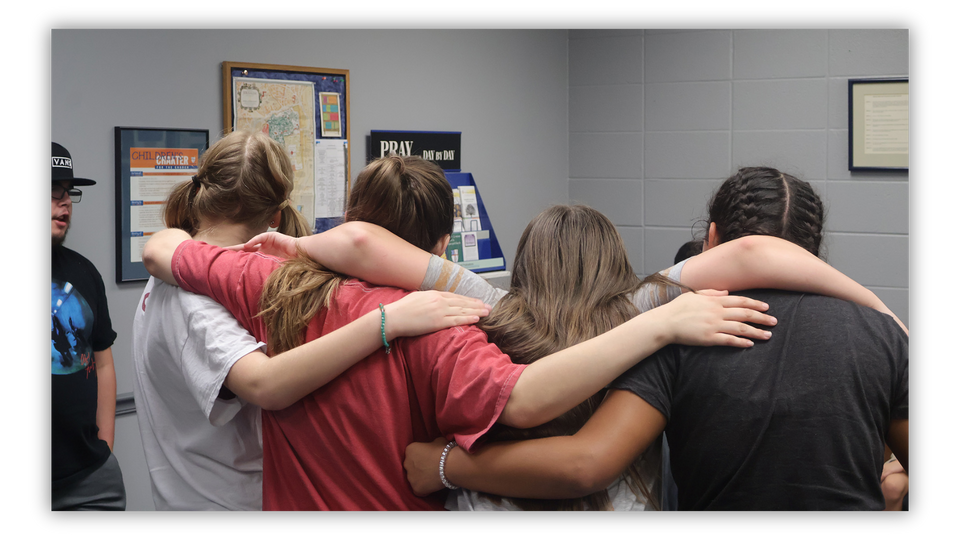
Theology in the Middle
“Grant that we may maintain that middle way, not as a compromise for the sake of peace but as a comprehension for the sake of truth.”
Collect for the Feast of Richard Hooker
Lesser Feasts and Fasts, p. 493
As a “Jackson Kemper diocese,” West Missouri might be considered part of the “Biretta Belt” of Midwestern dioceses living out the richness and deep sacramentality of Anglo-Catholic liturgical life. And that’s true – at least in some of our congregations. But our liturgical practice in West Missouri reflects the theology underlying our common life. We’re an incarnation of unity in diversity, and one of our chief expressions of that unity is gathering at the Lord’s table. Regardless of how it’s celebrated, the Eucharist is not just officially “the principal act of Christian worship on the Lord’s Day” (BCP, 13) but, practically, what even our smallest congregations expect a full experience of Sunday morning to include; we’re actively reorganizing our clergy to ensure every congregation has regular access to the Sacrament. The celebration of the Holy Eucharist looks quite different from one context to the next. A few miles from Anglo-Catholic St. Mary’s in downtown Kansas City (which lives into its longtime moniker “Smokey Mary’s”), our cathedral and two other larger parishes embrace a broad-church ethos. At one, St. Andrew’s, you’ll find icons on the wall and a vested choir, but the music might as likely be a spiritual or an old Protestant hymn as a William Byrd motet; and the
midweek service in its community center features prayers and songs on a screen, interactive preaching, and
worshipers serving each other Communion. At St. Augustine’s in Kansas City, in a round brick building inspired by the
Church of the Holy Sepulcher in Jerusalem and worship spaces in Scandinavia, you’ll find high-church worship – and
liturgical dancers, too.
Our diversity only grows as you look and listen across the diocese. You’ll hear Cursillo standards and the Anglican
Chant Psalter, praise choruses and chanted gospels. You’ll hear congregational worship in Spanish and bilingual
liturgies at diocesan events. You’ll see quinceaneras at Hispanic congregations in the southwest and at a suburban
parish in northern Kansas City. You’ll hear bagpipes leading the Palm Sunday procession outside St. Andrew’s as well
as leading the Kirkin’ o’ the Tartans at our cathedral in Kansas City and in parishes in Springfield. You’ll experience the
annual Harvest Festival in Skidmore, centered around a special service at St. Oswald’s-in-the-Fields. You’ll see a celebration of
la Fiesta de la Virgen de Guadalupe at Grace Church in Carthage and the annual Absalom Jones commemoration at St. Augustine’s in Kansas City.
Canon Jose Palma at the celebration la Fiesta de la Virgen de Guadalupe
Grace Church, Carthage
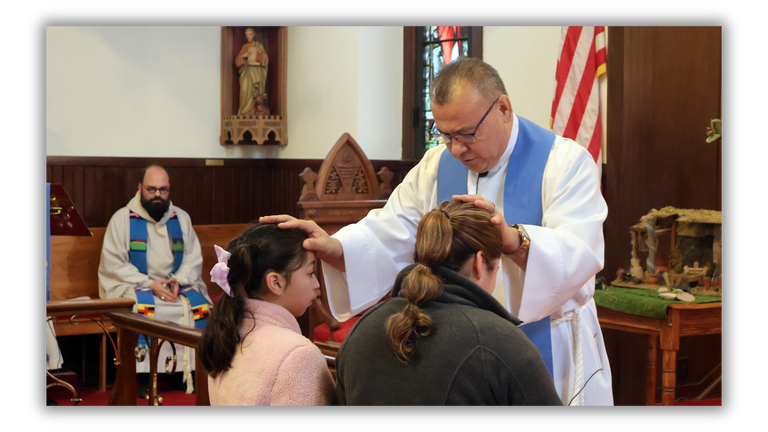
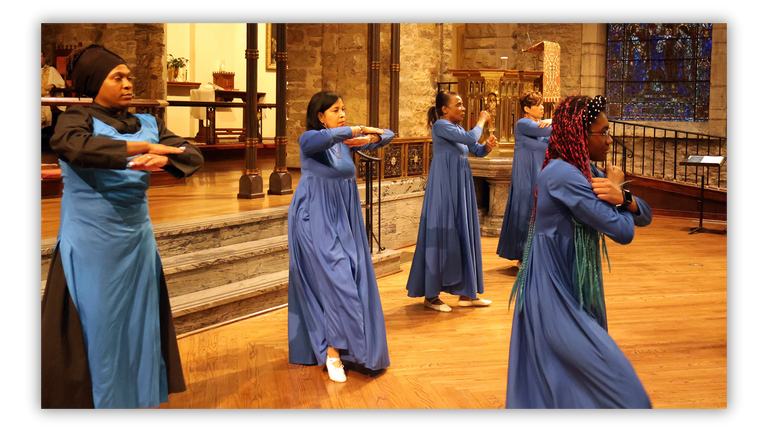
Liturgical dancers from St. Augustine’s performing Grace & Holy Trinity Cathedral, Kansas City
Being an incarnation of divine unity in diversity can get messy, but we come together theologically in West Missouri not just around the Lord’s Table but around the centrality of Jesus’ Good News and the call to welcome all into the joy of God’s saving love. In the words of the collect for Proper 8: “Almighty God, you have built your Church upon the foundation of the apostles and prophets, Jesus Christ himself being the chief cornerstone: Grant us so to be joined together in unity of spirit by their teaching, that we may be made a holy temple acceptable to you; through Jesus Christ our Lord, who lives and reigns with you and the Holy Spirit, one God, for ever and ever. Amen.”
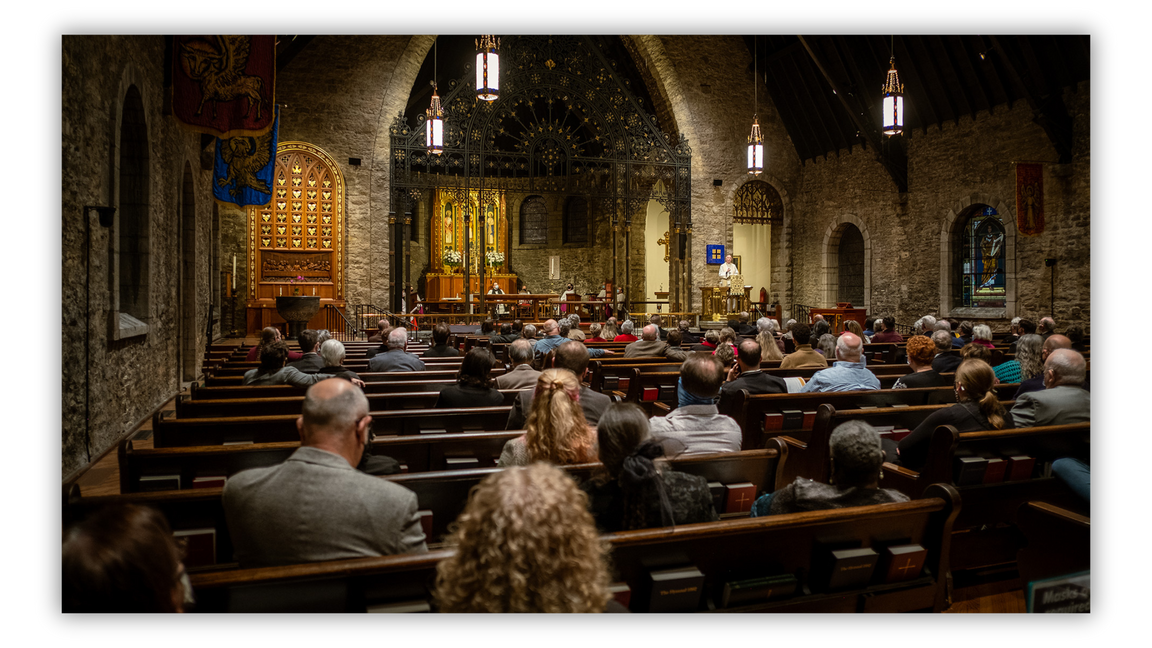
In the Middle of It
In the messy middle, determining which direction to turn and where to stake claims involves serious discernment and careful attention to the variables that surround us. A commitment to ministry in the middle means bringing everyone on board rather than pressing full steam ahead while leaving others in the wake.
2023 was a messy year in the best of ways. The year prior was spent laying the groundwork for discerning who God is calling us to be and what God is calling us to do. The Diocesan Council and Standing Committee began increasing their collaboration during 2022; in early 2023, we adopted new mission and vision statements with feedback from Diocesan Convention that would guide us through the messiness of 2023 in ways we couldn’t have anticipated.
Vision Statement
God’s just and peaceful beloved community built on our shared love of God and one another.
Mission Statement
As the Body of Christ, we seek, serve, and save the lost by proclaiming the Good News, forming disciples, serving others, and striving for justice.
During the discernment toward these statements, we realized one of the practical implications of our work – possibly the most significant – meant aligning our budget with our values. We needed to put our money where our mouth is, so we got to work. 2023 became the year of building a brand-new budget.
The pillars of our missional work – proclaiming the Good News, forming disciples, serving others, and striving for justice – became the framework for discerning what new and renewed ministries would be funded by our diocesan budget. Throughout the budgeting process, proposals were considered and plans were formulated to align our diocesan work and witness with these pillars. Building the budget around these pillars of our missional work was a continuation of the discernment process begun by the Diocesan Council and Standing Committee. We also asked our entire diocese to join in shaping our response to God’s call.
One of the guiding principles was to build the budget from the ground up. From the beginning, communications were sent to every address on diocesan communications lists to inform the entire diocese of the 2024 budgeting process. First, a message announcing a new budget process asked every member of the diocese to prayerfully and creatively discern what ministries our diocese might pursue in the future. Once the mission and vision statements were finalized, another message was sent to all on our communication lists requesting proposals be submitted for the 2024 budget – both new ideas as well as present ministries. All proposals were expected to justify their ministries against the pillars of mission; ministries previously included in the diocesan budget were also given space to reflect on their prior work and reorient as they saw fit for future ministry. Nothing except canonically required expenses were automatically included in the 2024 diocesan budget. At the conclusion of the initial proposals period, over $6 million of ministry proposals were submitted, $4 million more than previous diocesan budgets.
In addition to the expenses of diocesan ministry being rebuilt from the ground up, revenue streams were reconsidered for funding this mission. Diocesan investments and endowments were reexamined to clarify their purposes and efficiently fund our ministries. The Assessment Review Committee compared the assessment formulas of 54 dioceses and presented a variety of recommendations to the Diocesan Council for funding our shared ministries. Of particular note are the Diocesan Council’s passionate and personal conversations about the assessments of our congregations. Vastly different models – some skewing heavily toward increased burden on different portions of the diocese – were ultimately rejected. Voices representing the smallest churches strongly advocated for models that retained or increased their contributions, recognizing the value of our common life and wanting “to have skin in the game”; consensus was embraced around slight increases all around, with each church having its assessment rate elevated to invest in the larger budget needed for our diocesan ministries.
Working as a committee of the whole, the Diocesan Council spent a significant amount of each monthly meeting (often, the majority of the meeting time) to discern, negotiate, and construct drafts of the 2024 budget. As drafts were made, copies were distributed through the deanery councils for feedback from across the diocese. Feedback was shared through local churches’ delegates to the deanery councils; the deans compiled the feedback at each meeting and shared it with the Diocesan Council for consideration in the ongoing work of building the budget. Shifts, both major and minor, were made nearly every month as the Diocesan Council met to work on the budget, with diocesan staff and volunteer leaders collaboratively calculating and building this
budget. The final budget – enthusiastically adopted by the 2023 Annual Convention of The Diocese of
West Missouri without the contention that had overshadowed many previous conventions – reflects
countless hours of prayerful discernment and logistical undertaking from members of our diocese
responding to God’s call for us, pondering anew what the Almighty can do.
Enduring the messiness of this budgeting process while discerning God’s call unified our diocese in
myriad ways, and it reminded us that this work of meeting in the middle must continue, even though
the strenuous zero-based budgeting process has ended. Many of the proposals that didn’t make it into
this budget were thought to be right for the trajectory of our diocese but not right for this time,
especially those that would require hiring additional diocesan staff members before we elected our next
bishop. Some of the proposals that were ultimately included had been scaled down with the intent of
building up to a fuller vision of that ministry. All the proposals submitted in this budgeting venture have
been retained for future consideration.
As you peruse our current budget, you’ll find that we’re financially in the middle. Our diocesan financial resources are stable and sufficient for the work at hand. Rather than being stretched thin or seeing overflowing excess, we seem to have right-sized our budget and established our investments for long-term sustainability. See pages 35-39 of our 2024 budget for descriptions of our $10+ million in investment funds and trusts.
Our ministries and institutions
The 47 congregations of our diocese are each unique, and many have ministries in their communities that extend much further than one might guess. To show the variety of ministries our churches and institutions are engaged in, we invite you to peruse The Diocese of West Missouri’s recently updated Episcopal Asset Map.
In recent years, we have started, restarted, and strengthened many of our diocesan commissions, committees, and ministries. Visit this page to learn about our committee focused on accessibility, a devotional society for hunters and anglers, a fellowship for veterans, and many other ministries that strengthen our work in the holy messiness of ministry in the middle.
Saint Luke’s Health System is Kansas City’s only locally-owned, not-for-profit health system consisting of 14 hospitals and campuses with more than 12,000 employees across 67 counties of Missouri and Kansas. Saint Luke’s Episcopal history is detailed above, and the ongoing relationship between the health system and The Diocese of West Missouri lives on in many ways. The Bishop of West Missouri serves as the chair of the board of Saint Luke’s Hospital and the Bishop Spencer Place retirement community; the health system’s Director of Spiritual Wellness must be a priest of the diocese, and other clergy serve as chaplains in the system; we continue to send postulants for holy orders to complete Clinical Pastoral Education at Saint Luke’s.
Unaffiliated with Saint Luke’s in Kansas City, St. Luke’s Nursing Center in Carthage was established in 1972 as a ministry of The Episcopal Church in the area. The 95-bed skilled-nursing facility and assisted-living apartments are overseen by a board that is required to be majority Episcopalian, including the Rector and members of Grace Church, Carthage.
For over 10 years, The Diocese of West Missouri has sponsored The Bishop Kemper School for Ministry (BSKM) through funding from our operating budget, membership on the school’s board, and sending dozens of postulants and lay-certificate students to BKSM for their education and formation, in addition to having members of the diocese serving on BKSM’s faculty. BKSM is a collaborative venture of the Episcopal dioceses of Iowa, Kansas, Missouri, Nebraska, West Missouri, and Western Kansas, and it partners with the Central States Synod of the Evangelical Lutheran Church in America.
Diocesan Metrics
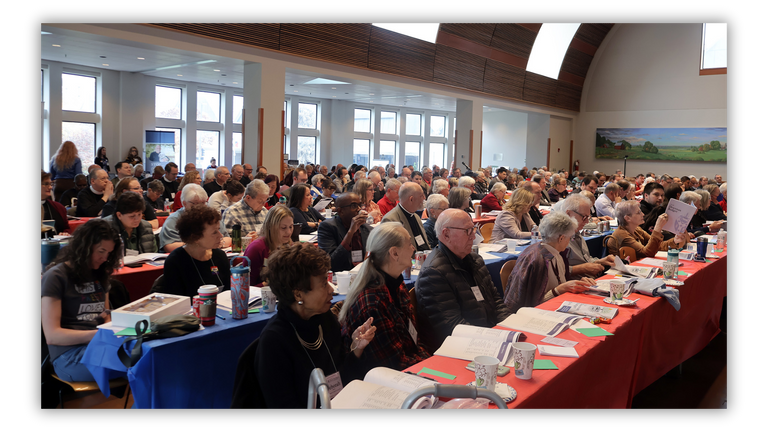
Delegates at the 2023 Annual Convention of The Diocese of West Missouri
Northwest-Metro Deanery
The Counties of Our Diocese
13 Churches
8* Full-time Priestly Cures
3 Part-time Priestly Cures
2 Lay Cures
5 Parochial Deacons
Central Deanery
16 Churches
2 Full-time Priestly Cures
8 Part-time Priestly Cures
6 Lay Cures
3 Parochial Deacons
Southern Deanery
18 Churches
5 Full-time Priestly Cures
9 Part-time Priestly Cures
4 Lay Cures
2 Parochial Deacons
Parochial Clergy by Deanery as of February 2024
*this number includes 2 churches currently served by multiple PT priests during rector interims
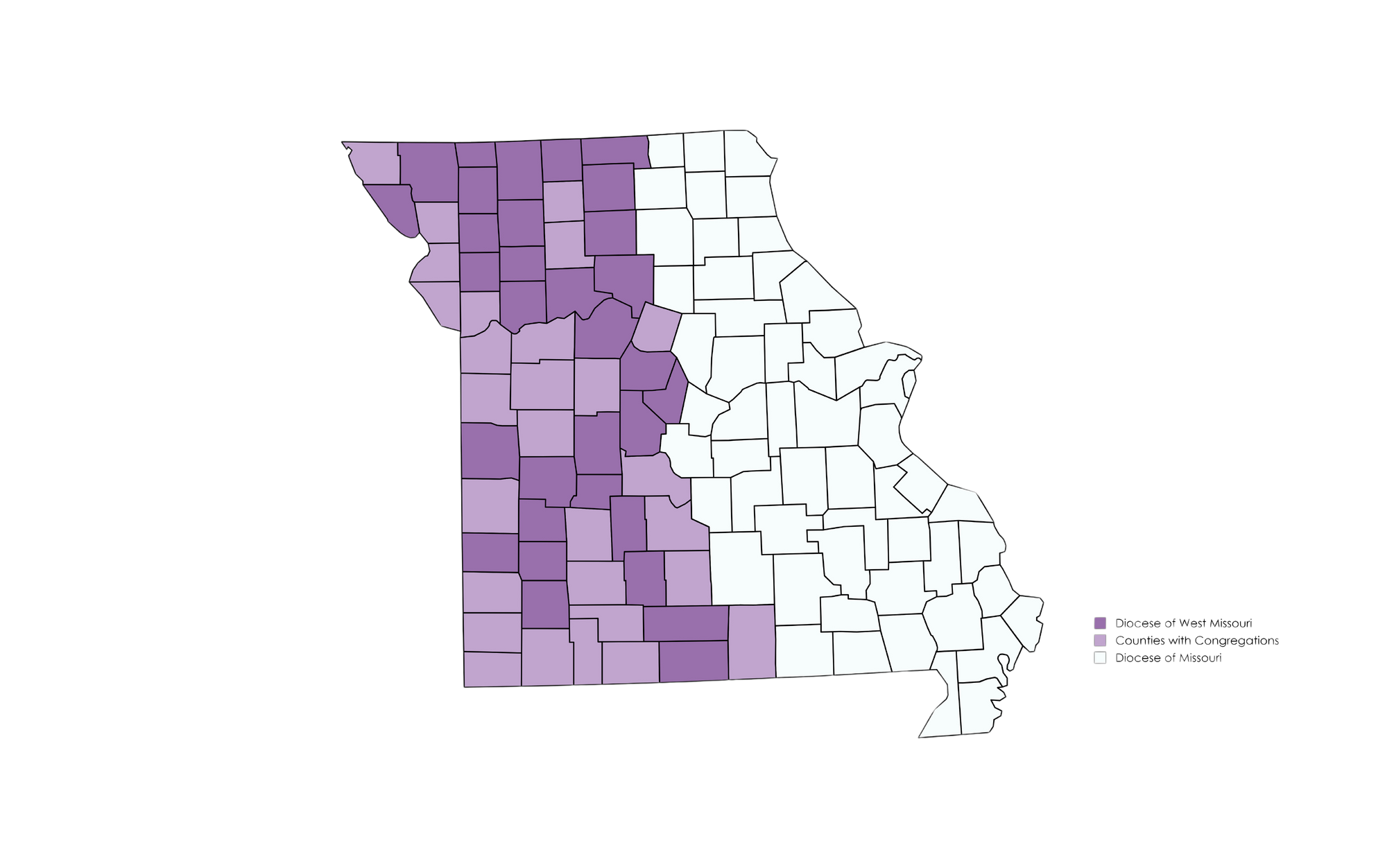
Diocesan Counties with Congregations
The Diocese of West Missouri
Of our 47 Congregations:
# of Congregations
Average Sunday Attendance

ASA
# of Congregations
Size of Towns & Communities

Population
Reported Plate & Pledge Giving

*as reported in 2023 on the 2022 Parochial Report
Our ecumenical relationships
Among our ecumenical relationships, our diocese interacts most intimately with the Central States Synod of the Evangelical
Lutheran Church in America. Since 2019, we have shared our Diocesan Center with the Central States Synod, saving costs
through common office space. Additionally, the Rev. Anne Meredith Kyle ministers in Sedalia as both the Rector of Calvary
Episcopal Church and the Pastor of Christ & Trinity Lutheran Church.
Some of our congregations have locally formed space-sharing partnerships with congregations of other churches. St. Matthew’s
in Ozark meets at Ozark Presbyterian Church, and the two congregations annually share several services together in addition to
weekly outreach. Church of the Transfiguration in Mountain Grove has an evangelical congregation meeting in its space on
Sunday and Wednesday evenings, and the two congregations share a meal together monthly to foster collaboration. A group of
faithful Anglicans who are South Sudanese meet for worship led by the Rev. John Deng at St. Paul’s in Kansas City.
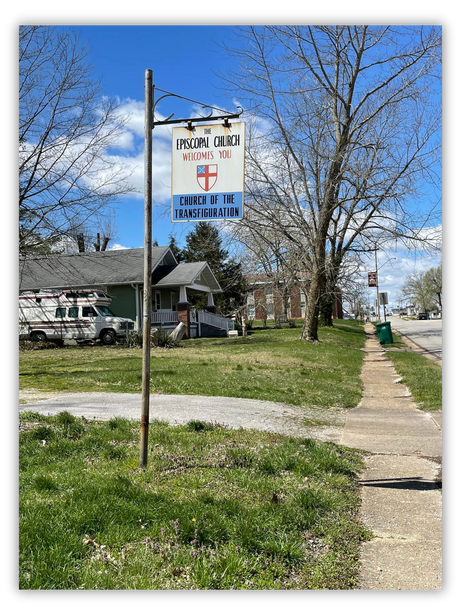
Where we’re headed
In the last year, we’ve sensed acutely that God is doing new work in and through us. Part of the messiness of ministry in the middle is faithfully responding to the renewed grace God gives us to meet each new day while still trying to get a sense of God’s big-picture call. As we’ve started new ministries and reimagined others in recent months, we’ve gained comfort living in the middle place of discerning step-by-step how God is leading us. We know we’re planted firmly here in West Missouri, and it is because of our deep missional roots and the continued nourishment of God’s Spirit that we trust God to cultivate in us a perennial desire to seek God’s Kingdom come here in West Missouri.
As we continue discerning God’s will for our diocese, we sense a particular calling to expand our ministry to our Hispanic neighbors throughout the diocese; to emphasize the formation of young Episcopalians into devout and lifelong Christians; to ensure each congregation has a dedicated priest to attend to their spiritual care through pastoral care and access to the sacraments, and to equip those saints for the work of ministry and the building up of Christ’s body in that place; to restore the missional desire of years gone by, manifested in preaching the Good News of God’s salvation particularly to those who do not yet believe, and for those who have lost their faith (BCP, 390); to build upon our ongoing work of outreach, extending our ministries to serve marginalized communities whom we have continued to underserve, and invite those on the margins into the middle as colleagues in the Gospel; and to continue dismantling the systemic dysfunction that has pervaded our diocese, modeling genuine love for God and neighbor in our common life.
The process of discerning who God is calling to be our next bishop, coinciding with the discernment of the new and renewed ways in which God is calling us to work and witness in West Missouri, is revealing a spirit of mutual trust and shared vision we had apparently lost. Where are we headed? God knows, and we firmly believe God will lead us to elect a bishop who will meet us in this discernment and share with us in the joys of following God’s call.
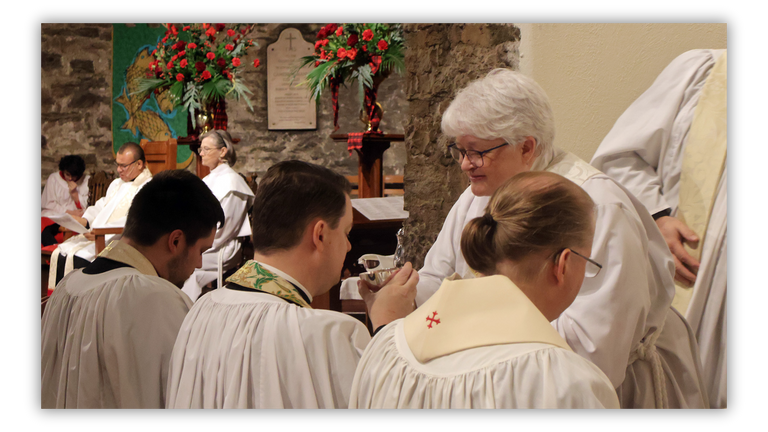
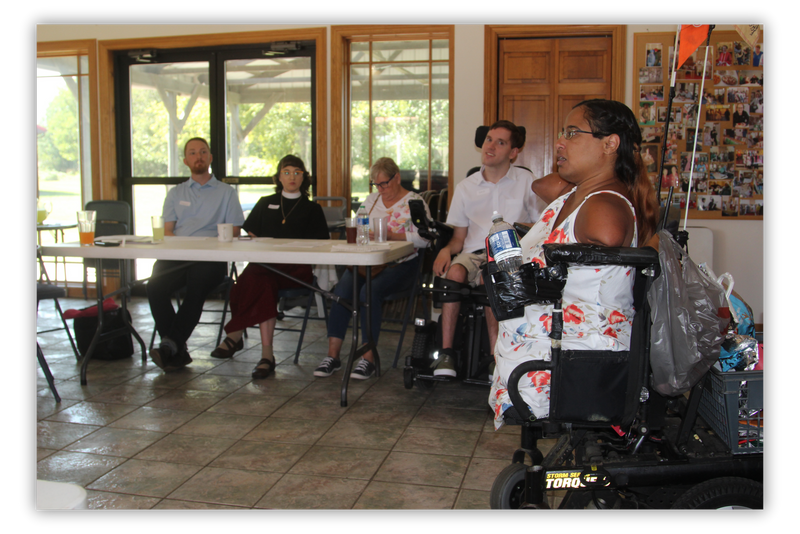
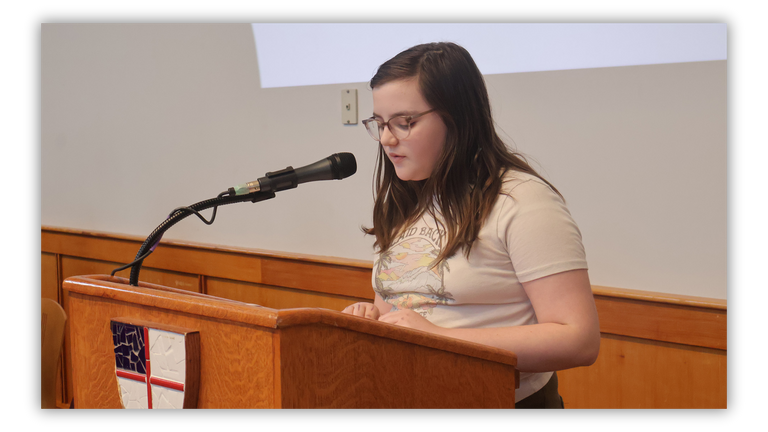
A Bishop for Us
Any discernment process requires awareness, and we’ve done some serious soul-searching when contemplating the kind of bishop we need at this juncture of our diocesan life. Through organic and orchestrated conversations since the conclusion of our last bishop’s ministry, our clergy and laity have found ourselves reflecting on the pendular nature of our episcopal elections. We’ve had a reactionary tendency to elect bishops who are primarily known for either their administrative attributes or their pastoral character – oscillating between those giftings in apparent hope that swapping one emphasis for the other would solve our issues.
Contending with this history, the current generation of diocesan leaders has committed to addressing our issues head-on, acknowledging that no bishop can cure our dysfunction. We’ve been aided in this reconciling work through the ministry of our Bishop Provisional, the Rt. Rev. Diane M. Jardine Bruce, who has simultaneously helped us name our dysfunction while reminding us that we’re worthy of love – two critically needed tasks that will have lasting ramifications beyond their initial benefit. This combination has encouraged and energized us for the ongoing work of building each other up in love to further God’s Kingdom. As detailed above, restructuring our diocesan budget through a unifying and forward-focused process allowed
us to turn a major bastion of dysfunction into a locus of partnership in common mission.
The work of growing together – of meeting in the middle to heal divisions and grow deeper
in our devotion to Christ – is a long and disciplined process. Thankfully, we know a thing or
two about the time it takes to grow deep roots and cultivate an abundant yield. Perhaps
Eugene Peterson, reflecting on the poems of Wendell Berry, said it best when he wrote,
“I can’t remember a farmer who was ever in a hurry. Farmers characteristically work hard,
but there is too much work to do to be in a hurry” (Eat This Book, 39).
Peterson goes on to say that hurrying causes disconnection by breaking the rhythms of the
seasons and forcing messy interconnections into disparate silos. “On a farm, everything is
connected both in place and in time” (39). The bishop we seek is one who wants to work
with us in this place and at this time. Our next bishop must be committed to growing with us
here, in the unique ecosystem that is West Missouri. We aren’t coastal or tropical or tundra, but we are right in the middle of fertile ground. And we’re ready for growth. We’ve already begun plucking the weeds and fertilizing the ground, and our next bishop must be ready to get their hands dirty with us in this work.
As we grow together in the middle, we hold common commitments in West Missouri and hope our next bishop will share them. Primarily, we are committed to the Gospel, the Good News of God in Christ who is redeeming this broken world from the powers of sin and death. The Gospel of redemption is, itself, unifying; all human beings deserve dignity and are equally in need of God’s saving grace. Acknowledging that God’s Good News is for all, our missional pillars of proclaiming the Good News, forming disciples, serving others, and striving for justice are all rooted in the redemption made available by the life, death, and resurrection of Jesus. We hope our next bishop will “be faithful in prayer, and in the study of Holy Scripture” that they “may have the mind of Christ,” and so “boldly proclaim and interpret the Gospel of Christ, enlightening the minds and stirring up the conscience of [the] people” (BCP, 518).
As an outpouring of our commitment to the Gospel of redemption from the powers of sin and death, our diocesan leaders are actively strategizing a holistic response to a newly named commitment: congregational vitality. The momentum created by building a new diocesan budget in 2023 is now being focused into strategic plans for congregational vitality throughout the diocese. Nourished by the sacraments and the support of our diocesan life, each congregation can experience revitalization as it ministers in its local context and in collaboration with others. This vitality would be evidenced by each congregation’s flourishing work and witness in its community, ministering in the messy middle to further God’s Kingdom. We hope our next bishop, supporting and encouraging this vitality, will be present and active in the congregations of the diocese and the communities in which they minister, serving as “a chief priest and pastor,” encouraging and supporting “all baptized people in their gifts and ministries” (BCP, 518).
While numerous other themes may depict our diocesan mission and ministry, as well as our dreams for the future, we share these insights gleaned from engaging the members of the diocese through listening sessions and a diocese-wide survey:
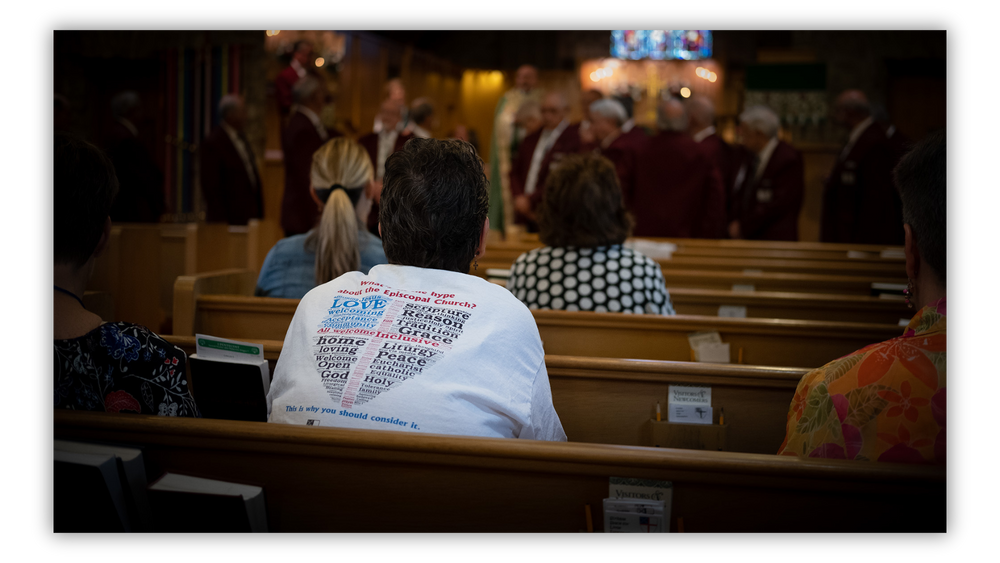
“We’ve moved from being silos of churches to starting to see ourselves as one body together. It’s important and needs to continue.”
– Long-serving diocesan staff member
“It’s important for the bishop not only to remind us of all the work they are doing but also celebrate the work we are doing.” – Listening-session participant
Important Church Missions (Top 5)
Members of the diocese were asked to rank missions based on their importance.
- Support of existing congregations
- Ministries to youth
- Issues of social justice and peace (racism, hunger, poverty, violence, environmental issues)
- Conflict resolution between groups/clergy/diocese
- Development of clergy and lay ministers
“Having the vision, willingness and courage to embrace Christ's value in what has been, what is and what lies ahead.”
- Survey respondent
“I hope every community in our diocese will have a clear sense of the gifts within them, who they are, and how they can connect with the world around them. Fear can become the louder voice, and I hope the next bishop will lead us into imagining what’s possible, not what’s impossible.”
– Listening-session participant
Skills & Interests Valued by our Diocese
- Ability to work and communicate across differences of any kind
- Effective pastor to all members of The Diocese of West Missouri
- Innovator with demonstrated leadership gifts and skills in managing change
- Vision for reaching the un-churched
- Reconciler, skilled and experiences in conflict management
From more than 100 pages of notes about the stories and hopes shared in our 16 listening sessions, these key themes emerged:
- Inclusivity and Outreach: Respondents seek a bishop who is approachable, engages with all congregations equally, and actively reaches out to diverse communities, including non-English speakers and marginalized groups.
- Support for Youth and Young Adults: Many comments emphasize the need for revitalization and support of youth, campus, and young-adult programs, suggesting a bishop who is energetic and innovative in engaging younger people.
- Spiritual and Pastoral Leadership: Respondents look for a bishop who is deeply spiritual, a person of prayer, and who prioritizes pastoral care, including the support of clergy and laity alike.
- Evangelism and Growth: Respondents expect the next bishop to focus on evangelism, church growth, and community involvement, indicating a desire for active, outward-facing leadership.
- Administration and Vision: Respondents expect effective management of diocesan resources, support for small and rural congregations, and a clear, inspiring vision for the future. Specifically, we heard many calls for the bishop to ensure each congregation has a dedicated priest.
- Social Justice and Environmental Concerns: Respondents want a bishop to be actively involved in social-justice issues and environmental stewardship, reflecting a commitment to broader societal and global concerns.
Altogether, these themes reflect a desire for a bishop who is not only a spiritual leader but also a dynamic, compassionate, and visionary shepherd capable of addressing the diverse needs and challenges of the diocese while fostering growth and unity.
Let’s Meet in the Middle
Do the qualities and characteristics of the bishop we seek sound like you? Does the story of our diocesan ministry – from our missional founding to our reinvigorated present and hopes for the future – sound like one that fits yours? If so, we invite you to come and meet us here in the middle and discern with us who God is calling to be the IX Bishop of West Missouri. After your initial discernment through personal prayer, if you think God could be calling you to partner with us, or if you believe someone you know might be called to this ministry, review the nomination and application instructions that follow so we can begin praying for and with nominees and applicants by name.
Nomination instructions
The Bishop Search Committee is seeking nominations for the IX Bishop of West Missouri. A nomination is not required for someone to apply. Complete contact information for the nominee must be provided at the time of nomination. After the nomination has been received, the Bishop Search Committee will contact the nominee to solicit their application following the standard application procedures detailed below.
Do note that all nominations are confidential.
To nominate someone to be our next bishop, complete this online form.
Application instructions
We also invite applications directly from those who may be called to this ministry. To enter into discernment with us, the following items must be submitted to the Bishop Search Committee:
- A cover letter
- The completion of this form
- Your current resume or CV
- A copy of your current OTM portfolio
- Written responses to the following questions, up to 500 words each:
- After reading our profile, what captures your imagination or stirs your interest as you prayerfully consider being the next Bishop Diocesan of West Missouri?
- What gifts and ministry skills would you bring to our diocese as our next bishop?
- What challenges and opportunities do you see for The Diocese of West Missouri, and how would you lead us into the future?
All application materials should be submitted via email to the Chair of the Bishop Search Committee, the Rev. Steven King, at bishopsearch@diowestmo.org. Completed applications must be submitted by Sunday, April 7, 2024.
Pertinent statements of non-discrimination and requirements
- No nominee shall be excluded “because of race, color, ethnic origin, immigration status, national origin, sex, marital or family status (including pregnancy and childcare plans), sexual orientation, gender identity and expression, disabilities or age, except as otherwise provided by these Canons.” (Title III, Canon 1, Section 2).
- Applicants must be at least thirty (30) years of age and have been ordained a minimum of seven (7) years.
- Applicants must be up-to-date on Safe Church, Safe Communities training.
Timeline
The discernment and election of our next bishop is a process that moves at the pace of prayer; as such, the proposed timeline is one of estimations more than deadlines. The Standing Committee and the Bishop Search Committee have committed to pausing at any stage of the process if more time is needed for discernment before progressing to the next stage.
Application materials for bishop candidates will be accepted through the Second Sunday of Easter, April 7, 2024.
The Bishop Search Committee will screen and interview applicants through June 2024 and will hold a discernment retreat for semi-finalists July 10-13, 2024, in the Kansas City area.
The slate of candidates will be announced and petition candidates will be accepted by the Standing Committee in August 2024. Candidates’ visits and learning sessions will be facilitated by the Transition Committee in September and October 2024.
God willing, we will elect the IX Bishop of West Missouri on November 9, 2024, and their ordination and consecration will be held in April or May 2025.
See the detailed timeline here.
Direct questions regarding the bishop search process can be sent to the Rev. Steven King, chair of the Bishop Search Committee, at bishopsearch@diowestmo.org.
Visit our website at bishopsearch.diowestmo.org for more information.

Thank you for prayerfully joining us in this discernment process toward the election of the IX Bishop of West Missouri.
The Bishop Search Committee
Ms. Regina Berens | St. Mary Magdalene Church, Belton
Ms. Hayley Cobb | Christ Church, Springfield
Ms. Minda Cox | St. Alban’s Church, Bolivar
Mr. Curtis Hamilton | Grace and Holy Trinity Cathedral, Kansas City
Ms. Cosette Hardwick | Christ Church, St. Joseph
The Rev. Rita Kendagor | St. Andrew’s Church, Kansas City
The Rev. Steven King (Chair) | St. Paul’s Church, Kansas City
Dr. Victor Matthews | St. John’s Church, Springfield
Ms. Amanda Perchall | Trinity Church, Lebanon
The Rev. Isaac Petty | St. James Church, Springfield
The Rev. Susan Roberts | Saint Luke’s Health System, Kansas City
The Rev. Brock Slabach | St. Mary Magdalene Church, Belton
The Rev. John Spicer | St. Andrew’s Church, Kansas City
The Rev. Kim Taube | Christ Church, Boonville